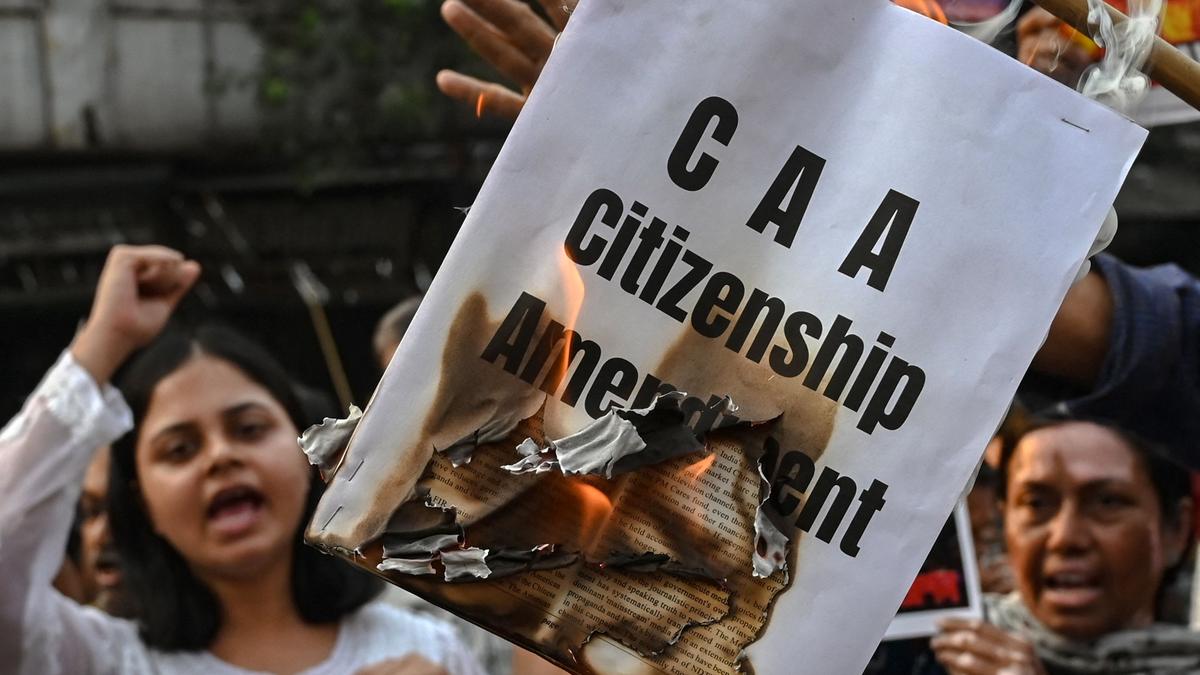
What does the USCIRF report say about India? | Explained
The Hindu
USCIRF report flags deteriorating religious freedom conditions in India, rejected by Indian government as biased and agenda-driven.
The story so far: The Washington DC-based United States Commission on International Religious Freedom (USCIRF) on October 2 released a country update on India, flagging “collapsing religious freedom conditions”. Among other things, the report highlighted how throughout 2024, individuals from minority communities have been killed and lynched by vigilante groups, religious leaders have been arbitrarily arrested, and places of worship have been demolished. The Indian government has rejected the report as coming from a “biased organisation”.
The USCIRF is an independent, bipartisan U.S. federal government agency created under the 1998 International Religious Freedom Act (IRFA). It monitors the universal right to freedom of religion or belief (FoRB) in countries other than the U.S. Its assessments of countries are based on international human rights standards, and in particular, Article 18 of the Universal Declaration of Human Rights, which states, “Everyone has the right to freedom of thought, conscience and religion; this right includes freedom to change his religion or belief, and freedom, either alone or in community with others and in public or private, to manifest his religion or belief in teaching, practice, worship and observance.”
The USCIRF is distinct from the Office of International Religious Freedom (IRF), which is part of the U.S. State Department. The IRF also releases annual reports on religious freedom. While the USCIRF’s reports could have a bearing on a country’s image, the IRF’s stance is more consequential for bilateral relations.
As per its mandate under the IRFA, the USCIRF monitors religious freedom conditions across the world through travel, research and meetings with representatives of international human rights groups, NGOs, victims of persecution, and foreign officials with the aim of putting out a report every year, listing the countries that meet the threshold for designation by the U.S. State Department as a “Country of Particular concern” (CPC). It also shares another list of countries that, in its assessment, ought to be included in the State Department’s ‘Special Watch List’ (SWL).
Countries that “commit systematic, ongoing, and egregious violations of religious freedom” would be designated as a CPC. Countries “whose governments engage or tolerate in severe religious freedom violations, but do not rise to the CPC standard of “systematic, ongoing, and egregious” would be included in the SWL. If the U.S. State Department accepts the USCIRF’s recommendation and designates a country as a CPC, then under the IRFA, it has a range of policy options, including sanctions, to address such kind of violations.
The report, authored by Sema Hasan, Senior Policy Analyst with the USCIRF, says that religious freedom in India in 2024 has been on a “deteriorating and concerning trajectory”. It stated that the Indian government, through legislations such as the Citizenship (Amendment) Act, 2019 for which the rules were published in May this year, and “through the enforcement of discriminatory legislation like anti-conversion laws, cow slaughter laws, and antiterrorism laws”, continued to “repress and restrict” religious minorities. It also details how “Indian officials have repeatedly employed hateful and derogatory rhetoric and misinformation to perpetuate false narratives about religious minorities, inciting widespread violence, lynchings, and demolition of places of worship.” In its 2024 annual report, the USCIRF designated India as a CPC.
Spokesperson of the Ministry of External Affairs Randhir Jaiswal rejected the report, stating, “Our views on the USCIRF are well known. It is a biased organisation with a political agenda. It continues to misrepresent facts and peddles a motivated narrative about India. We reject this malicious report, which only serves to discredit USCIRF further.” He further added, “We would urge USCIRF to desist from such agenda-driven efforts.”

The girl, who was admitted to Aster CMI Hospital with alarming breathlessness and significant pallor, was diagnosed with Wegener’s Granulomatosis (now known as Granulomatosis with Polyangiitis or GPA), a rare autoimmune condition that causes spontaneous bleeding in the lungs, leading to acute respiratory failure.

ACB files case against IPS officer N. Sanjay in Andhra Pradesh. The official is accused of manipulating the tender processes for awarding contract for development and maintenance of AGNI-NOC portal, and conducting awareness meetings for SC/STs. It is alleged that the total value of properties stolen, or involved in the case is estimated at ₹1,75,86,600.









